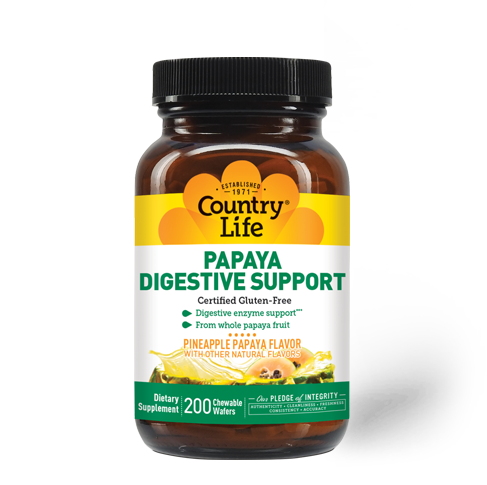Why You Should Consider a Gut Health Supplement for Improved Gut Flora
Why You Should Consider a Gut Health Supplement for Improved Gut Flora
Blog Article
Discover the Key to Food Digestion and Resistance With Intestine Health Assistance

Understanding Gut Health
Understanding digestive tract wellness is critical for general health, as it plays a significant function in food digestion, immunity, and also psychological health. The gut, consisting of the intestinal system, is accountable for breaking down food, taking in nutrients, and eliminating waste. A balanced gut setting ensures effective food digestion, permitting the body to utilize nutrients successfully.
Moreover, gut health and wellness dramatically impacts the immune system. The digestive tract houses a considerable section of the body's immune cells, and a healthy and balanced gut can help fend off microorganisms and decrease swelling. Disturbances in intestine health can lead to an overactive immune reaction, potentially contributing to autoimmune conditions and allergic reactions.
Additionally, the gut is frequently referred to as the "2nd brain" because of the gut-brain axis, a complicated communication network linking the brain and the digestive tract. This connection influences mood, cognition, and emotional health. Concerns such as dysbiosis, characterized by an inequality in intestine germs, have been connected with psychological wellness problems, consisting of stress and anxiety and anxiety.
The Gut Microbiome Explained

The gut microbiome, a varied area of microbes living in the gastrointestinal system, plays a critical function in preserving digestive system health and wellness and overall health. Consisting of trillions of germs, infections, fungis, and other germs, this facility environment aids in the food digestion of food, the synthesis of necessary nutrients, and the regulation of metabolic processes.
Each individual's gut microbiome is one-of-a-kind, influenced by factors such as diet plan, lifestyle, genes, and environmental exposures. A well balanced microbiome supports ideal digestion by damaging down complex carbohydrates, producing short-chain fats, and helping with the absorption of nutrients. Alternatively, a discrepancy, often described as dysbiosis, can bring about digestive system disorders, consisting of irritable bowel disorder (IBS) and inflammatory bowel illness (IBD)
Research has actually demonstrated that a diverse microbiome is related to far better health and wellness end results, underscoring the significance of dietary selections in supporting these microorganisms. Foods rich in fiber, probiotics, and prebiotics, such as fruits, vegetables, and fermented items, can promote a healthy microbiome. Understanding the intestine microbiome is important for developing targeted treatments focused on enhancing digestive system health and avoiding intestinal diseases.

Connection In Between Digestion and Resistance
A robust link exists between digestion and resistance, highlighting the important duty of the digestive tract in keeping general wellness. The gastrointestinal tract is home to trillions of microbes that form the digestive tract microbiome, which significantly influences both immune responses and digestion procedures. This complex community help in damaging down food, absorbing nutrients, and supplying crucial metabolites that support immune function.
When food digestion is reliable, the digestive tract barrier continues to be intact, stopping harmful microorganisms from entering the bloodstream (gut health supplement). On the other hand, poor digestion can cause an inequality in the microbiome, causing dysbiosis, which has been linked to different wellness concerns, consisting of autoimmune diseases and inflammatory disorders. In addition, about 70% of the body immune system resides in the gut-associated lymphoid cells (GALT), which connects very closely with the intestine microbiome. This interplay ensures that the body immune system can efficiently differentiate between damaging and useful compounds.
Tips for Sustaining Digestive Tract Health
Sustaining gut wellness find is important for keeping both digestion efficiency and a well-functioning body immune system. To promote optimal digestive tract health, think about incorporating a number of practical approaches into your day-to-day routine.
First, focus on hydration. Drinking sufficient water sustains digestion and aids maintain the mucosal cellular lining of the intestinal tracts. Additionally, routine exercise can improve digestive tract motility and promote a varied microbiome.
Conscious eating practices are likewise essential. Chewing food extensively and consuming slowly can assist digestion and avoid over-eating, which may stress the digestive tract. Managing tension with methods such as reflection, yoga exercise, or deep-breathing workouts can favorably affect intestine health and wellness, as stress and anxiety is known to disrupt gastrointestinal processes.
Integrating prebiotics and probiotics right into your routine is another effective approach. While specific foods will be discussed later, understanding the significance of these elements check these guys out is vital. Prebiotics work as food for beneficial intestine microorganisms, while probiotics present real-time helpful organisms.
Finally, prevent excessive use anti-biotics, as they can interfere with the equilibrium of digestive tract vegetation. By adhering to these ideas, you can substantially contribute to the maintenance of a healthy and balanced intestine, which is necessary for general health and wellness and vitality.
Foods That Promote Gut Health

Fermented foods, such as yogurt, sauerkraut, kefir, and kimchi, are abundant in probiotics, which are helpful germs that support gut flora and improve digestion. These foods can aid bring back balance in the gut, specifically after antibiotic usage or digestion disturbances.
Along with fermented options, prebiotic foods, such as garlic, onions, asparagus, and bananas, function as sustenance for these probiotics, promoting their growth and task. These soluble fibers support gut mobility and can minimize issues like constipation.
Moreover, incorporating high-fiber foods, consisting of entire grains, legumes, vegetables, and fruits, is crucial for keeping a healthy intestine. Fiber aids in normal defecation and assists prevent gastrointestinal disorders.
Last but not least, omega-3 fatty acids located in fatty fish, flaxseeds, and walnuts have anti-inflammatory residential properties that can even more sustain gut health and wellness. Emphasizing these foods in your diet plan can bring about a robust digestion system and enhanced immune feature.
Verdict
In final thought, focusing on intestine wellness is essential for optimizing digestion and improving immunity. A balanced gut microbiome, influenced by dietary choices and lifestyle elements, plays an important function in nutrient absorption and swelling reduction.
Recognizing gut health is essential for overall well-being, as it plays a significant role in food digestion, resistance, and also psychological wellness. The intestine houses a significant part of the body's immune cells, and a healthy gut can help fend off pathogens and lower swelling.In addition, the gut is frequently referred to as the "second mind" due to the gut-brain axis, an intricate communication network linking the gut and the mind.A durable link exists between food digestion and resistance, highlighting the vital function of the gut in keeping overall health.In verdict, prioritizing gut wellness is necessary for optimizing food digestion and improving immunity.
Report this page